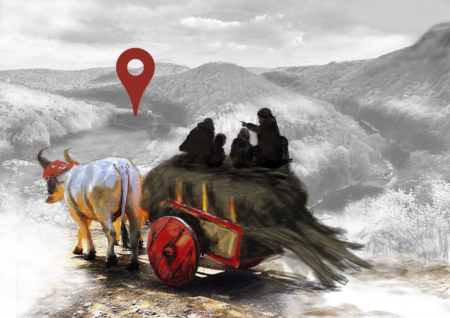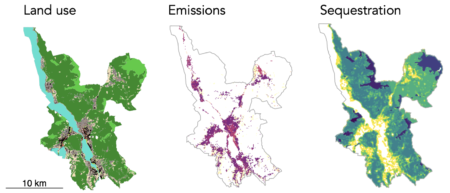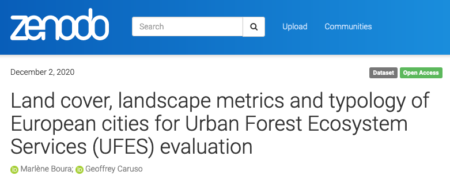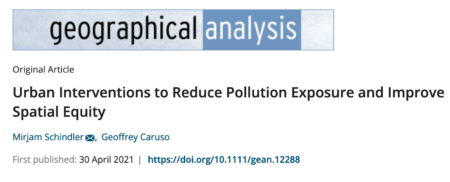Using point process models for comparing archaeological settlement patterns Kaarel Sikk (University of Luxembourg, C2DH and DGEO) When? 21st May 2021, 2 to 3 pm Where? via Webex (request meeting link by registering to isabelle.piroth@uni.lu or geoffrey.caruso@uni.lu) Point process modelling provides a framework for exploring systems that can be observed as a set of points.
MonthMay 2021
Quadtrees Hub#6
Towards a spatially explicit urban CO2 budget. Urban carbon emissions, dispersion and sequestration in Europe On May 21st, our sixth Quadtrees Hub will take place. The aim is to share and discuss research in progress. Quadtrees’hubs are open to anyone interested and somehow familiar with some quantitative techniques and willing to progress with these. Please
Land cover, landscape metrics and typology of European cities for Urban Forest Ecosystem Services (UFES) evaluation
Datasets by Marlène Boura and Geoffrey Caruso Zenodo: http://doi.org/10.5281/zenodo.4301952 Description The datasets provide a typology for 689 European urban areas, the land cover metrics and landscape metrics used to create the typology and the Urban Forest Ecosystem Services (UFES) indexes created from them. The typology of Urban Forest Ecosystem Services (UFES) presents 10 clusters of
Scaling of Urban Heat Island and NO2 with Urban Population: A Meta-Analysis
The International Environmental Modelling and Software Society Conference 2020 (iEMSs 2020) was hosted by the International Environmental Modelling and Software Society and Hydrology Department of the Vrije Universiteit Brussel from September 14 to 18, 2020. This event was held online. The details of iEMSs 2020 are here. The followings are the abstract and the video
Urban Interventions to Reduce Pollution Exposure and Improve Spatial Equity
New publication by Mirjam Schindler and Geoffrey Caruso Abstract Air pollution is of increasing concern to urban residents and urban planners are struggling to find interventions which tackle the trade‐off between environmental, health, and economic impacts arising from this. We analyze within a spatially explicit theoretical residential choice model how different urban interventions can reduce
Les dimensions spatiales et socioprofessionnelles du travail frontalier aux frontières franco-suisse et franco-luxembourgeoise
I. Pigeron-Piroth et R. Belkacem, Geo-Regards n° 13/2020 Cet article analyse les principales dimensions spatiales et socioprofessionnelles des travailleurs frontaliers aux différentes frontières de la France, notamment au sein des pôles d’emploi transfrontaliers de Genève, Bâle et de Luxembourg. Il s’appuie sur une exploitation des données du recensement français de la population, complétées par les




